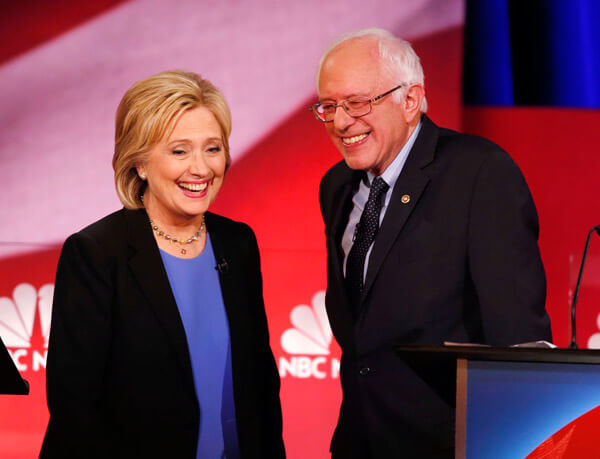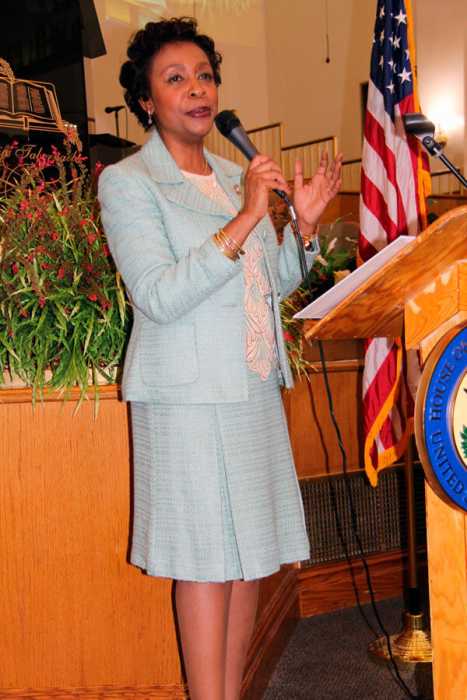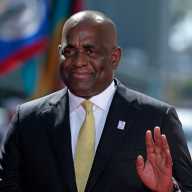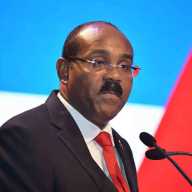There’s a potentially disturbing sequence that could envelop this 2016 presidential election scenario, leading to an eventual result that, one presumes, the clear-headed, politically alert portion of the electorate would abhor. The unimaginable and dispiriting possibility of a Donald Trump or Ted Cruz getting elected in November should hopefully be sufficient to have Democratic voters conscientiously engage their role as the wedge to forestall political disarray of those unthinkable dimensions. And for the Democratic voting bloc, it’s engagement not for well down the road in this important election cycle, but right now, early in the winnowing process.
Democratic voters have been notoriously blasé about affairs of state, as evidenced by inexcusably low turnout on the Democratic side, particularly in off-year elections, leading to current Republican control on Capitol Hill and decisive majorities among governorships and state legislatures. We have previously taken our shots in this space at the Democratic Party leadership for its lack of focus on effectively sensitizing its base to the far-reaching consequences of losing by default to the other side. Indicating no awareness of the urgency of making the case with supporters for dramatic upswing in voter turnout is hardly a feather in the cap for party strategists. Which means the upcoming presidential contest represents one of the most critical crossroads yet, for Democrats getting their act together, beginning with nominee selection.
Straight talk, here’s the picture. Democrats’ insurance against extremist tripe like Trump or Cruz finagling their way to the presidency is Hillary Clinton. The noise around Bernie Sanders is a romanticized pursuit which, should he become the Democratic nominee, would facilitate his opponent, even if it happens to be some kook among the GOP offerings. Sanders’ profile is unfortunately one that, on its face, is already very concerning to lots of folk, what with the “socialist” tag that’s irreversibly a part of the package. It is the kiss of death, affording bloodthirsty hounds on the right a pulverizing opportunity that a Sanders candidacy would no way be able to withstand. Bottom line, a Trump or Cruz or any other inveterate hawker of extremist right-wing values who winds up as the GOP choice gets trounced by Clinton. The dynamics are markedly changed if Democrats ill-advisedly select Sanders, who stands a good chance of losing.
Sanders and the folks working his campaign would of course insist that he’s no “spoiler” candidate — that he’s quite capable of going the full distance. The smart betting says, more than likely he isn’t, not with the left-of-center image that defines him. You need not be Rhodes-scholar bright to forecast the lambasting of the Sanders model as “un-American” that would ensue, courtesy Republican / Tea Party tacticians and their countless super-PAC proxies. Whatever ideological designation correctly fits Sanders is good for nada, we know, when the go-for-the-jugular artillery is brought to bear on the likes of a Sanders candidacy, as it’s tarred as too much of an outlier for the nation’s taste.
The phenomenon of some portion of the voting public throwing support to a candidate known to be going nowhere is hardly a rarity. One fairly recent example of this at the presidential election level, which wound up having national and even global repercussions, was the 2000 bid of Ralph Nader as a minor-party candidate, and how this impacted the controversial Florida vote and George W. Bush becoming president. Despite the malarkey from Nader and others who have attempted to spin the Florida vote debacle every which way, it was clear that the more than 97,000 votes racked up by Nader in Florida was the difference maker in Al Gore’s not winning Florida and the presidency. Nader had stubbornly resisted all entreaties to bow out of the race in Florida, given how tight it was projected to be. As the Green Party candidate, Nader’s refusal to cede ground to Gore, a known advocate for the environment, only confirmed that the once respected consumer crusader had transitioned to full-blown, egomaniacal nut.
Bernie Sanders’ bid for the 2016 Democratic nomination is of course not to be construed as analogous to Nader’s self-serving antics in Florida in 2000. The efforts are similar, though, in the attractiveness they tend to hold for a passionate, cause-oriented following. That these “symbolic” or “protest” campaigns (which, again, Sanders’ is not) are typically less concerned with big-picture outcomes than getting the hoi polloi on board in making a statement, has its merits, supposedly. From our vantage point, supporting such candidacies is a pretty lame utilization of the powerful instrument of citizenship that is the franchise. In the matter of this 2016 race with, already, its bizarre twists, there’s too much at stake. There should be zero accommodation for unthinking use of the voting privilege.





















